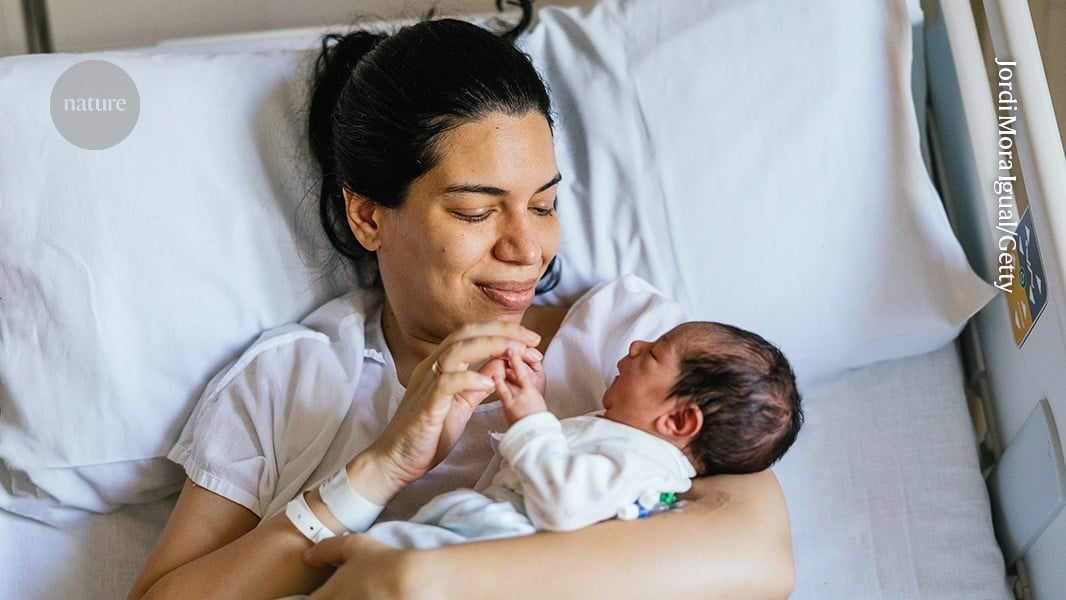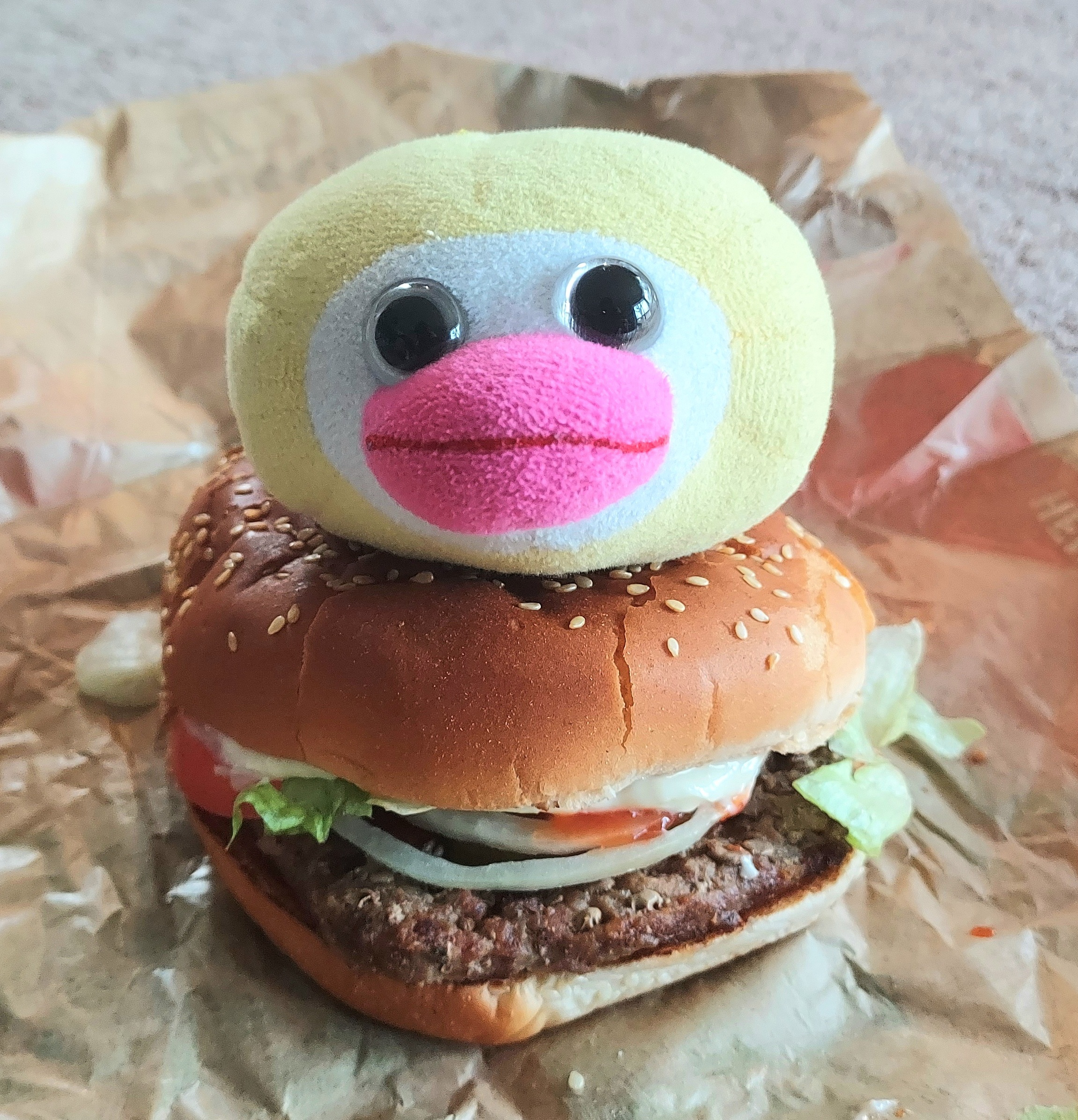- cross-posted to:
- [email protected]
- cross-posted to:
- [email protected]
Feeding a baby born by caesarean section milk containing a tiny bit of their mother’s poo introduces beneficial microbes to their gut, according to a clinical trial. The approach might one day help to prevent diseases during childhood and later in life.
Some studies show that babies born by c-section, rather than vaginal birth, have a higher risk of asthma, inflammation of the digestive system and other diseases associated with a dysfunctional immune system… Experiments have attempted to compensate for that by swabbing babies born by c-section with microbes from their mother’s vagina or giving them these microbes orally, a practice known as ‘vaginal seeding’. But this technique has had limited success, because vaginal microbes, scientists have learnt, cannot effectively colonize infants’ guts…
Helve and his colleagues have been pioneers in testing whether faecal transplants can instead improve the health of a baby’s microbiome. In their latest trial, which recruited women scheduled for a c-section at the Helsinki University Hospital, the researchers mixed a fluid containing 3.5 milligrams of a mother’s poo into milk and gave the concoction to the corresponding baby. They did this for 15 babies during their first feed. Another 16 babies received a placebo.
An important next step in the field, Shao says, would be to pinpoint the specific maternal gut microbes that are most likely to transmit to and colonize their babies’ guts. Shao asks: “If these species do exist across human populations, wouldn’t it be more effective and safer” to give newborns a laboratory-made transplant that’s guaranteed to be pathogen-free?
“This is the shit”
But seriously don’t try this at home. Fecal matters can contain pathogens, in fact 54 of the 90 women screened were excluded because of detected pathogens. If this goes well maybe ppl can make some type of lab-made probiotics for C-section babies or stuff
The abstract presented at IDWeek 2024: https://idweek2024.eventscribe.net/index.asp?presTarget=2886841
As someone who was extracted via C-section and has lifelong chronic respiratory and digestive issues, I find this fascinating.
Gonna hit my moms up for some dookie when we chat on Sunday
Hey Mom, gimme some of that good shit.
Just so you know, they found out that any healthy dookie helps and not just from your mom.
Oh thank god. Now I don’t have to talk to her
I don’t think I know any healthy people though
I would volunteer if it meant you didn’t have to talk to your mother again.
Stop trying to get me to eat your poop
3<=>€
I never want to see those 2 words used together ever again.
You had me at poo milkshake

homelander 🤤
Triumph! Haven’t seen that dog in ages!
Poo milkshake
“Poothie” was right there.
Different study:
Early-life microbiota seeding and subsequent development is crucial to future health. Cesarean-section (CS) birth, as opposed to vaginal delivery, affects early mother-to-infant transmission of microbes. Here, we assess mother-to-infant microbiota seeding and early-life microbiota development across six maternal and four infant niches over the first 30 days of life in 120 mother-infant pairs. Across all infants, we estimate that on average 58.5% of the infant microbiota composition can be attributed to any of the maternal source communities. All maternal source communities seed multiple infant niches. We identify shared and niche-specific host/environmental factors shaping the infant microbiota. In CS-born infants, we report reduced seeding of infant fecal microbiota by maternal fecal microbes, whereas colonization with breastmilk microbiota is increased when compared with vaginally born infants. Therefore, our data suggest auxiliary routes of mother-to-infant microbial seeding, which may compensate for one another, ensuring that essential microbes/microbial functions are transferred irrespective of disrupted transmission routes. https://www.cell.com/cell-host-microbe/fulltext/S1931-3128(23)00043-4
Babe what’s up? You barely touched your postnatal poo milkshake.
Maybe quit over using c-section. It should only be used when necessary but it is being used for convenience
Even if some women use it to avoid the excruciating pain of vaginal birth, that’s still a very very very valid reason.
The only “convenience” I’ll assume you’re talking about is for the doctor. I was told my only options for birth was a C-section or induced labor, because the doctor “didnt like surprises.” I’m still upset that I did not know how to advocate for myself as a young adult because I was forced into an induction and several other unexpected medical nightmares due to hospital/staff/doctor negligence.
Vaginal birth isn’t always excruciatingly painful. It depends on the mother’s body type and health but it can also be improved with a proper birth position. Humans weren’t evolved to give birth laying on our back like in the movies, we were meant to give birth in a squatting position.
Some women have even claimed that their vaginal birth was intensely pleasurable, causing them to achieve orgasm. Of course no one wants to hear this, as clashes with all sorts of taboos against women’s sexuality and giving birth in general!
Of course no one wants to hear this, as clashes with all sorts of taboos against women’s sexuality and giving birth in general!
Buddy. I don’t have time to get into that rn. But ok.
The non-painful births do exist, absolutely, but they are outliers. I’m sure “pleasurable” births exist, as well, but, again, those are outliers.
Never in my life have I met a woman who gave birth with low pain without the use of drugs.
Atleast we are learning, the downvotes on original comment is… Why?
I’d assume because with the wording you’ve used, it may seem like you are blaming women for getting C-sections.
(for the record, I did not downvote you)
Some women do chose it for their own reason which is non of my business but they are also getting sent that way by medical system… which i would wager is a lot larger % of women.
Also good to remember that after a C-section, any child after that is recommended to also be C-section. Something like 25% of vaginal births after C-sections end in complications that will require a C-section anyhow.
Bodies are complicated. It’s good to have treatment to ensure better health for the baby, regardless of what kind of birth was had.
That is not clear in your comment. I didn’t downvote you but it comes off like you are boomer posting that all the modern women are getting c sections foolishily out of a desire to make it easy
Dont boomers love c sections tho thats how we got here?
Doctors push them extra becuase it is convenient for them
Koala pap.
Why is this study for only babies born by caesarean section and not all babies?
This is the study they were referring to: https://doi.org/10.1016/j.jaci.2015.07.040
C-section babies have slightly higher risks of several diseases related to immune system function, and the hypothesis is that it is because these babies have slightly less developed immune systems
I took a quick look at the study and it didn’t mention anything about digestion or fecal matter being used? How does that relate to helping a babies immune system?
I clearly didn’t drink enough coffee for this before posting
My bad, the original news article did a good job at explaining the missing link… I misunderstood what you were asking
- C-section babies seem to have more immune system-related diseases (https://doi.org/10.1016/j.jaci.2015.07.040), so scientists think they would benefit from special treatment
- Scientists tried to fix this by giving the babies vagina-derived bacteria (https://doi.org/10.1038/nm.4039); couldn’t find any more reports on this but it seems like these don’t work super well?
- This is a proof-of-concept by the lab highlighted in the news (https://doi.org/10.1016/j.cell.2020.08.047), they tried using fecal matter and it worked
- The abstract featured in the news is now a clinical trial that is in progress
I think that’s pretty much it
The summary from the last link connected the dots for me.
Thanks for the insights. Enjoy your coffee :).
I hope OP didn’t skimp on the milk :)







